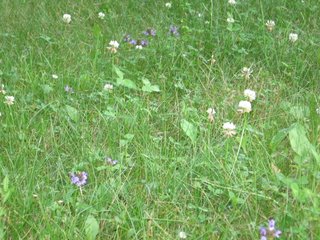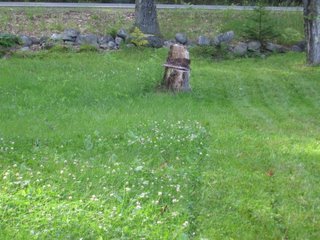It's going to be an exciting year for the Joe family. We've decided to make the switch this year to B20 BioFuel (80% petroleum, 20% vegetables) for the 2006-07 heating season. As my partner and I have grown more committed to our efforts to minimize our impact on the planet, we have decided that money can no longer be a barrier to following our values in this area. Hence, in February we bought a
Honda Civic hybrid that gets nearly 50 miles to the gallon and has very low emissions. We continue to purchase as much locally-grown and/or organic food as we can find. We have reduced our use of plastics. And now we are going the
BioFuel route. And the best news about BioHeat is that the prices are now competitive with petroleum.
We received notice, through the
Maine BioDiesel newsletter, that local supplier
Independence Fuel in the neighboring town of Durham, is among several BioDiesel companies in the state now offering fixed-price plans for BioDiesel. This is a huge step in bringing Bio Fuel to the mainstream. The product is
cleaner, safer and more environmentally friendly than pure petroleum, and 20% of the product is produced in this country! In prior years pricing wasn't competitive, and the companies couldn't offer the security of the fixed price contracts that are so important with the constant rise in oil prices. This year is different, however. The contracts are available, and the pricing actually beats that offered by my former supplier. I was willing to pay more for all of the benefits that BioFuel provides, so I'm certainly willing to pay less. In fact, I signed up for a budget (10 payment) plan that is 10 cents cheaper than the price-cap pre-buy price of my incumbent supplier! I save money and I don't have to write a check for $1,500 this summer? Where do I sign?
According to Independence Fuel's web site, they still have
fixed-price plans available. Click here to find other BioFuel dealers in the state. If you don't live in Maine (and why don't you?),
check the map to find a supplier near you.

 Is this any way to run a lawn?
Is this any way to run a lawn? 

